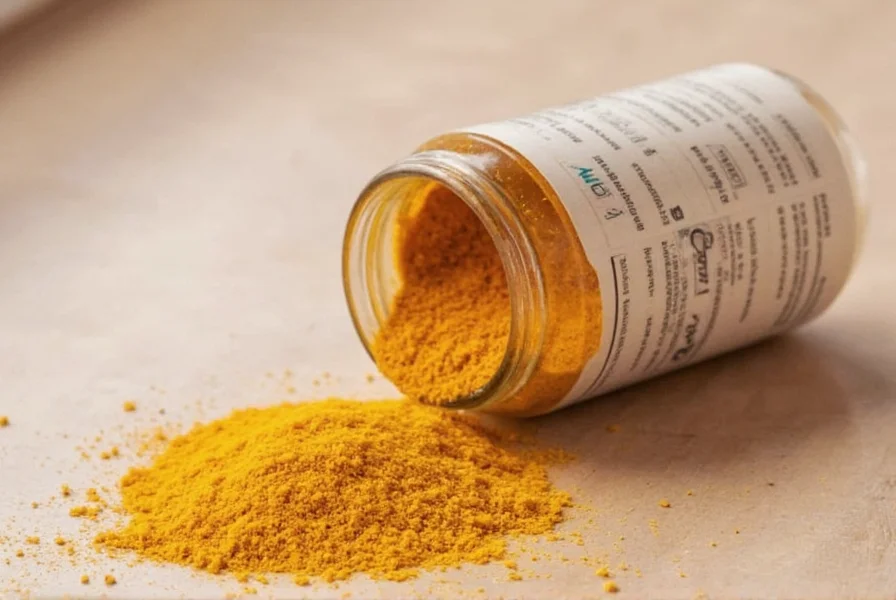As pet owners increasingly seek natural supplements for their canine companions, turmeric has gained attention for its potential health benefits. This golden spice, commonly used in human nutrition and traditional medicine, contains curcumin—a compound with documented anti-inflammatory and antioxidant properties. While research on turmeric for dogs is still evolving, understanding proper usage, potential benefits, and important safety considerations can help pet owners make informed decisions.
Understanding Turmeric's Potential Benefits for Dogs
Curcumin, the primary active component in turmeric, has been studied extensively in human medicine for its anti-inflammatory effects. For dogs, particularly those with age-related joint issues, turmeric may offer complementary support. Studies suggest curcumin can inhibit inflammatory pathways similar to some non-steroidal anti-inflammatory drugs (NSAIDs), but without the same gastrointestinal risks.
Research published in Frontiers in Veterinary Science indicates that curcumin supplementation may help improve mobility in dogs with osteoarthritis. However, most studies have been small-scale or conducted in laboratory settings rather than clinical environments. The bioavailability of curcumin remains a challenge, as dogs—like humans—have difficulty absorbing it efficiently without enhancement.

Proper Turmeric Dosage Guidelines for Canines
Determining the correct turmeric dosage for dogs requires careful consideration of multiple factors including the dog's weight, health status, and the specific formulation being used. Veterinarians typically recommend starting with conservative amounts:
| Dog Weight | Basic Turmeric Powder | Curcumin Extract | Golden Paste |
|---|---|---|---|
| Under 10 lbs | 1/8 tsp daily | 25-50 mg | 1/4 tsp daily |
| 10-25 lbs | 1/4 tsp daily | 50-100 mg | 1/2 tsp daily |
| 25-50 lbs | 1/2 tsp daily | 100-200 mg | 1 tsp daily |
| 50-100 lbs | 3/4-1 tsp daily | 200-400 mg | 1-2 tsp daily |
| Over 100 lbs | 1-1.5 tsp daily | 400-600 mg | 2-3 tsp daily |
These amounts should be divided into two doses administered with meals. Always begin with the lowest possible dose to assess your dog's tolerance before gradually increasing. The inclusion of black pepper (containing piperine) and healthy fats like coconut oil significantly enhances curcumin absorption—a formulation commonly known as golden paste for dogs.
Safety Considerations and Potential Side Effects
While is turmeric safe for dogs is a common question, the answer depends on proper administration. Most dogs tolerate turmeric well when given in appropriate amounts, but potential side effects include:
- Mild gastrointestinal upset (diarrhea or vomiting)
- Increased bleeding risk in dogs with clotting disorders
- Interference with certain medications including chemotherapy drugs and diabetes medications
- Potential worsening of gallbladder issues
Dogs with pre-existing medical conditions, particularly those affecting the liver, kidneys, or gastrointestinal tract, require special consideration. Turmeric's blood-thinning properties mean it should be discontinued at least two weeks before any surgical procedure. Pregnant or nursing dogs should avoid turmeric supplementation unless specifically recommended by a veterinarian.
Administering Turmeric Effectively to Dogs
Simply adding plain turmeric powder to your dog's food provides minimal benefit due to poor absorption. For optimal results when how to give turmeric to dogs, consider these approaches:
- Golden paste preparation: Mix 1/2 cup turmeric powder with 1 cup water, simmer until forming a paste, then add 1/3 cup coconut oil and 2-3 teaspoons black pepper. Store in refrigerator for up to two weeks.
- Commercial supplements: Look for turmeric supplements for dogs that include absorption enhancers and have been third-party tested for quality.
- Food integration: Mix small amounts with wet food, yogurt, or bone broth to improve palatability.
When introducing turmeric, monitor your dog for any adverse reactions during the first week. Some dogs may initially experience mild digestive changes as their system adjusts. If you notice persistent vomiting, diarrhea, or unusual lethargy, discontinue use and consult your veterinarian.
When to Consult Your Veterinarian
Before starting any new supplement regimen including turmeric and black pepper for dogs, schedule a consultation with your veterinarian. This is particularly important if your dog:
- Has diagnosed medical conditions
- Takes prescription medications
- Shows signs of chronic pain or inflammation
- Is scheduled for surgery within the next month
Your veterinarian can help determine whether turmeric might complement your dog's existing treatment plan or if alternative approaches would be more appropriate. They may also recommend specific brands or formulations that have demonstrated quality and efficacy.
Evidence-Based Perspective on Turmeric for Canine Health
While anecdotal reports about benefits of turmeric for dogs are plentiful, scientific evidence remains limited. A 2020 review in Veterinary Sciences noted that while curcumin shows promise for inflammatory conditions, most studies have been conducted in vitro or in laboratory animals rather than clinical settings with companion dogs.
The most compelling evidence supports turmeric's potential role in managing osteoarthritis symptoms. A study published in The Journal of Veterinary Pharmacology and Therapeutics found that dogs receiving curcumin supplementation showed improved mobility scores compared to placebo, though the effect size was modest. More research with larger sample sizes and longer durations is needed to establish definitive protocols for turmeric dosage for dogs.
It's crucial to maintain realistic expectations—turmeric should be viewed as a complementary approach rather than a replacement for conventional veterinary care. For dogs with significant health issues, evidence-based medical treatments should remain the primary approach, with supplements like turmeric potentially serving as supportive elements.
Frequently Asked Questions About Turmeric for Dogs
Can I give my dog human turmeric supplements?
While human turmeric supplements aren't inherently dangerous for dogs, they often contain higher concentrations of curcumin than appropriate for canine use. Many also include additional ingredients that might not be suitable for dogs. Always consult your veterinarian before giving human supplements to your dog, and consider products specifically formulated for canine use with proper absorption enhancers.
How long does it take to see results from turmeric for dogs?
Most pet owners report noticing potential improvements in mobility and comfort after 4-8 weeks of consistent, proper dosing. Curcumin needs time to build up in the system and exert its anti-inflammatory effects. If you don't observe any changes after 8-12 weeks at the appropriate dosage, turmeric may not provide significant benefits for your particular dog's condition.
Can turmeric cause yellow staining in dogs?
Yes, turmeric can temporarily stain light-colored fur yellow, particularly around the mouth after administration. It may also cause yellow discoloration of stools. These effects are harmless but can be minimized by wiping your dog's muzzle after giving turmeric and using encapsulated forms rather than loose powder. The staining typically fades within a few days after discontinuing use.
Is turmeric safe for puppies?
Generally, turmeric is not recommended for puppies under 12 months of age unless specifically directed by a veterinarian. Puppies' developing systems may react differently to supplements, and their nutritional needs are best met through complete and balanced puppy food. If considering turmeric for a young dog with a specific medical condition, consult your veterinarian first to determine if the potential benefits outweigh any risks.
Can I make golden paste with regular cooking oil instead of coconut oil?
While you can use other healthy fats like olive oil or avocado oil in golden paste, coconut oil is preferred for dogs due to its medium-chain triglycerides that may provide additional health benefits. Avoid using oils high in omega-6 fatty acids like corn or soybean oil, as these can promote inflammation—counteracting turmeric's primary benefit. The fat content is essential for curcumin absorption, so never prepare golden paste without a fat source.











 浙公网安备
33010002000092号
浙公网安备
33010002000092号 浙B2-20120091-4
浙B2-20120091-4